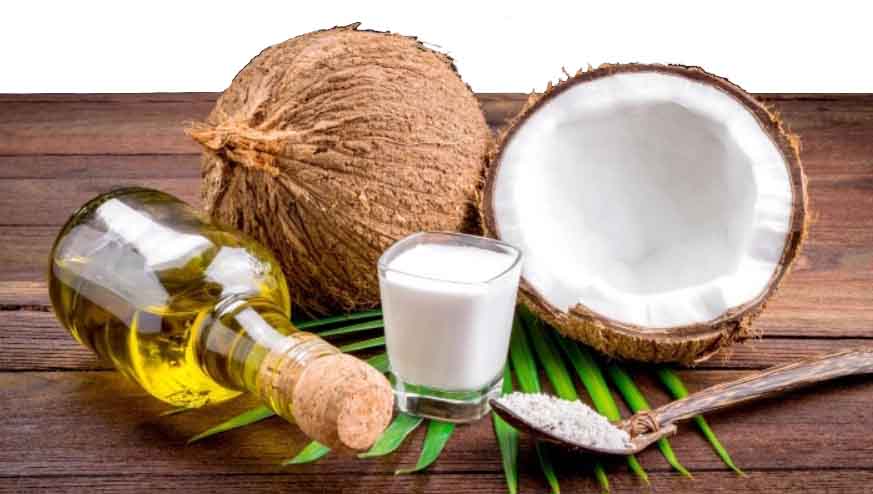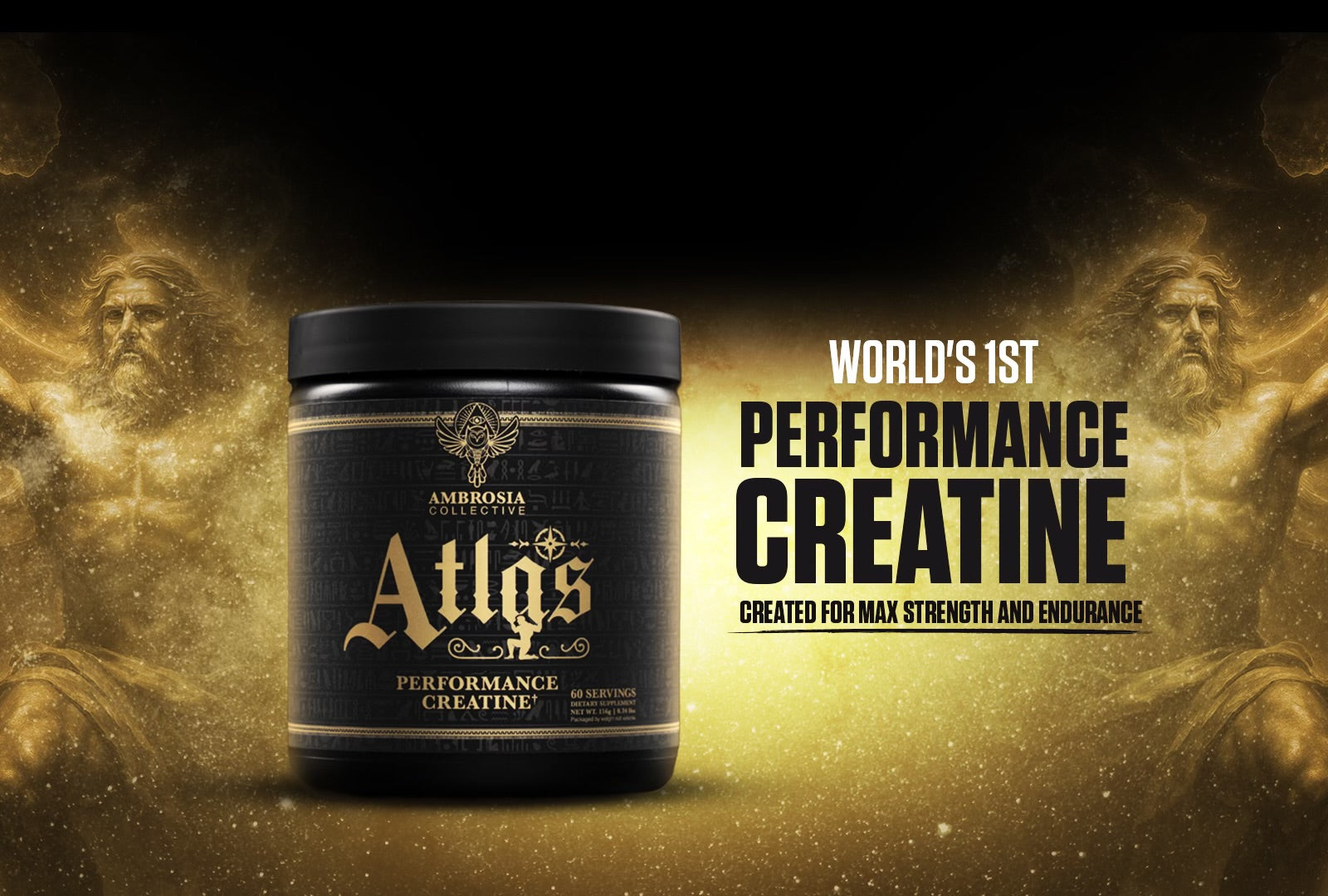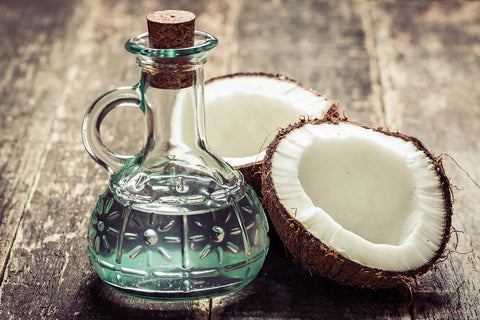
If you stay up-to-date in the health and fitness community, chances are you’ve probably caught wind of MCTs also known as medium-chain triglycerides. MCT products have burst onto the scene recently due to their highly touted health benefits and overall versatility.
MCTs can be incorporated into diets in a number of different ways. People can use MCTs in their coffees, smoothies, and even salad dressings. Although MCTs provide numerous health benefits, it’s important to note that not all types MCT’s are created equal in terms of quality and effectiveness.
Hi, I’m Sean Torbati. As a person who stays continually engaged in the health and wellness community, I always strive to find new and innovative methods of improving various aspects of my life. As of late—I started digging into the science behind MCTs and quickly realized how beneficial they can be when properly incorporated into our daily lives.
Let’s take a deeper dive into the basics of MCTs including—how they work and how they can be incorporated into your diet strategy.

The Basics of MCTs
The acronym MCT is an abbreviation for the term medium-chain triglycerides. Many people are familiar with the term triglycerides due to their association with cholesterol readings. While certain types of triglycerides may be linked to cardiovascular problems and heart disease—some forms can be useful for dietary means.
Triglycerides are a type of fatty acid that is bound to a glycerol backbone. These fatty acids contain a set amount of carbon atoms which can help classify these fatty acids into different categories based on carbon chain length.
- Short-chain fatty acids/triglycerides: contains 5 or less carbon atoms
- Medium-chain fatty acids/triglycerides: contains 6 to 12 carbon atoms
- Long-chain fatty acids/triglycerides: contains 13 or more carbon atoms
Short-chain triglycerides and long-chain triglycerides both provide active functions within the body but have different benefits. Short-chain triglycerides help the digestive system by providing cellular energy. Long-chain triglycerides may benefit heart health, but MCTs operate in an entirely different manner.
MCTs can be found naturally in foods such as coconut oil and palm oil, but that doesn’t mean each type of MCT provides the same benefits. MCTs cover a broad range of fatty acids so it's important to differentiate each subcategory to determine which one is most beneficial.
What are the Different Types of MCTs?
Medium-chain triglycerides can be classically defined into four distinct categories. Since MCTs cover a broad spectrum of fatty acids containing 6 to 12 atoms, not every one may be the same. Caproic acid (C6) has only six carbon atoms, but this type of MCT has not proven to provide major health benefits. Capric acid (C10) can provide immunity benefits in certain dosages (1). Lauric acid (C12) has shown to potentially improve quality of life in breast cancer patients (2).
Although different types of MCTs have been shown to provide health effects, Caprylic acid or C8 has been shown to be most beneficial to overall health. MCTs are processed differently than other fats within the body. Unlike other fats that are absorbed through the bloodstream, MCTs can provide rapid energy in the form of ketones.

Performance Benefits
MCTs can directly help improve athletic performance. Recreational athletes were given 6g of MCT during moderate-intensity exercise and high-intensity exercise over a 2 week period. Subjects were asked to perform exercise at a workload corresponding to a 60% peak O(2) uptake for 40 minutes followed by a 80% peak until exhaustion. Blood lactate concentration, VO(2), VCO(2), and RPE were measured at rest and during exercise. Individuals taking MCTs compared to other groups showed the time to exhaustion at an 80% workload was significantly higher (8). In other words, MCTs may help extend the duration of high-performance exercise allowing people to workout for longer periods of time.
Another study looked at endurance-trained cyclists who rode at 60% peak O2 uptake over a 40 km time trial. These athletes consumed MCTs, glucose, or a combination of both. Adding MCTs decreased the direct and/or indirect oxidation of muscle glycogen (9). These indicators point to the fact that MCTs may be able to extend high-performance training sessions.
MCTs may also improve high temperature induced exercise performance impairment. One research trial found that MCTs up-regulate the expression and protein levels of genes involved in mitochondrial biogenesis and metabolism (10). Collectively, findings indicated a beneficial effect of dietary MCT in exercise performance through the increase of mitochondrial biogenesis and metabolism. Each of these studies point to the positive impact MCTs can have on athletic performance and endurance.
Ketogenic/Weight-Loss Benefits
People following a keto style diet may consume C8 MCTs for various reasons. One study was performed on nine participants who each received doses of MCT oil containing various types of MCTs. One dose was consumed at breakfast with a follow-up dose at lunchtime. Blood was tested throughout the day and results showed that MCTs with the highest C8 concentrations produced the greatest number of plasma ketones—based on this we can effectively presume that C8 has the most ketogenic properties (3).
Although C8 has ketogenic effects, it’s important to note that other individuals also benefit from MCTs. One study looked at a group of overweight adults who consumed either 20g of MCTs or 20g of olive oil daily with other variables remaining constant. Over the course of sixteen weeks, MCT consumption resulted in lower body weight and fat mass compared to the olive oil control group (4). When taken in conjunction with a weight-loss program, participants may experience additional benefits from consuming MCTs.
MCTs can also improve weight loss through increased energy expenditure. A study was done on eight men who consumed MCTs with meals throughout the day. The group consuming MCTs experienced a 5% increase in overall daily caloric expenditure (5). While this may not seem like a lot, this can quickly add up to several hundred calories over the course of days and weeks.
Cognitive Benefits
In addition to weight loss properties, MCTs may also provide a number of cognitive benefits. A study performed on diabetic patients found that MCTs helped to improve cognition when MCTs were consumed (6). Eleven patients received MCTs and results found that performance measuring verbal memory, digit symbol coding, digit span backwards, and map searching all improved after consuming MCTs.
MCTs have also been proven to help patients suffering from Alzheimer’s disease. One study performed had patients MCTs over a 12 week period. During this time, neurocognitive tests were performed monthly. The results found significant improvement in immediate and delayed logical memory tests (7).
Incorporating MCTs into your Diet
MCTs can provide a number of health benefits related to weight-loss, energy expenditure, and improved cognition. I recently began consuming MCTs daily and the results have been remarkable to say the least!
Since I’ve begun taking C8 MCTs I’ve noticed a number of changes in my body. My focus, acuity, and mental clarity has improved significantly throughout my daily life—I’ve even stopped taking pre-workout due to the increased energy I feel.
As I’ve dived deeper into the benefits of MCTs and C8 in particular—the results have been astonishing. I encourage you to give MCTs a try and see if you notice a difference in your daily life. I’m here to help you improve your health physically, mentally, and emotionally—so let’s work together to optimize our lives to the best of our abilities.
Kindest regards,
Sean Torbati - PN Certified Nutritionist | EXOS Phase 3 Training Specialist
Co-Founder, Ambrosia Collective
References:
- https://www.ncbi.nlm.nih.gov/pmc/articles/PMC90807/
- https://www.nature.com/articles/cddiscovery201763
- https://academic.oup.com/cdn/article/1/4/e000257/4555134
- https://www.ncbi.nlm.nih.gov/pubmed/18326600
- https://www.ncbi.nlm.nih.gov/pubmed/8654328
- https://www.ncbi.nlm.nih.gov/pubmed/19223595
- https://www.sciencedirect.com/science/article/pii/S0304394018307304
- https://www.ncbi.nlm.nih.gov/pubmed/19436137
- https://www.ncbi.nlm.nih.gov/pubmed/8806933
- https://journals.plos.org/plosone/article/file?id=10.1371/journal.pone.0191182&type=printable












